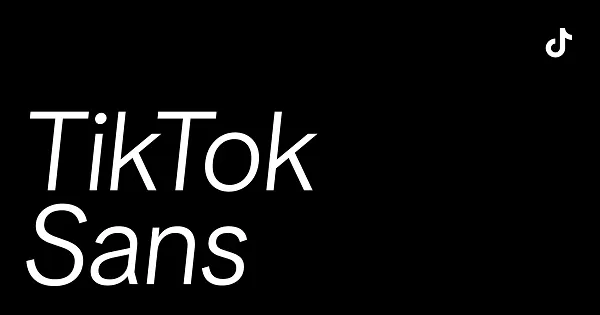Tech giants to social enterprises: How they use tech to better lives, even for seniors and PwDs
Contributing to help the less digitally abled need not be left to the big corporations – everyone can actually play a part.

The COVID-19 pandemic has accelerated Singapore’s digitalisation efforts, and also expanded the ways in which Singaporeans can be empowered by digital technologies.
Supported by the Infocomm Media Development Authority (IMDA), Digital for Life is a national movement that aims to galvanise the community to help Singaporeans embrace digital as a lifelong pursuit, and use digital to enrich our lives.
Since it started in February 2021, there has been positive support from the private, people and public sector, with more than 100 partners from the business corporations, government entities, charitable organisations and non-governmental organisations all coming together to contribute to the movement.
From teaching underprivileged children basic laptop access skills to refurbishing laptops to pass it on to low income families, going around schools to educate children on cyber wellness, or creating assistive tech to help seniors and persons with disabilities, there are more ways than one for everyone to play a part in helping to build a digitally inclusive society for all.
Singtel: Empowering the elderly to go digital
Singtel is one of the three major telcos involved in the Digital for Life movement, particularly targeting seniors.
In support of the movement, Singtel launched a new digital inclusion initiative in March 2022 to bridge the digital gap for seniors and provide them with free data to access the Internet and stay connected with family and friends.
Called Donate Your Data, the scheme is currently open to GOMO subscribers – who can choose to donate their data to needy seniors via the GOMO mobile app – though it will be progressively extended to other Singtel mobile customers as well.
 Singtel provides data to vulnerable seniors / Image Credit: Singtel
Singtel provides data to vulnerable seniors / Image Credit: SingtelPartnering with NTUC Health in the pilot launch, Singtel consolidates the donated data into prepaid hi! SIM cards to be distributed to needy seniors across their 13 Senior Activity Centres.
This latest initiative complements its ongoing Singtel Digital Silvers Programme, which aims to promote digital literacy among seniors.
 Singtel Digital Silvers helps to teach elderly basic digital skills / Image Credit: Singtel
Singtel Digital Silvers helps to teach elderly basic digital skills / Image Credit: SingtelFirst launched in September 2020, the programme sees Singtel employees volunteer at Senior Activity Centres and Active Aging Centres every week to teach the elderly basic digital skills.
“Through our Singtel Digital Silvers programme, seniors are equipped with the digital knowledge and skills such as how to use their smartphones and make e-payments, so they can lead more fulfilling and engaged lives,” said Anna Yip, CEO of Singtel’s Consumer Singapore.
“We continually champion digital inclusion across various community segments because we want everyone to benefit from digitalisation – nobody should be left behind because they don’t have the right knowledge or resources.”
According to Yip, these initiatives have been well-received so far and the telco will continue to seek new ways to empower more people to get connected and reap the benefits of technology.
At the upcoming Digital for Life festival organised by IMDA, Singtel will have a booth to allow the public and senior beneficiaries to find out more about their community programmes. They will be located at Suntec Main Hall on 21 and 22 May from 10am to 7pm, and Heartbeat@Bedok Main Hall on 28 and 29 May from 10am to 6pm.
Mercurics: Building an app that acts as a navigation map for wheelchair users
Mercurics is an AI company that builds computational models to better understand people at scale in diverse application domains such as human resource, retail, finance, and more.
At the same time, they are also a social enterprise that harnesses data and technology to tackle #techforgood projects.
In 2020, they built a free tool for corporate clients to assess the mental wellbeing of their employees via its selfi.ai platform so employers can take necessary intervention measures.
 SmartBFA project aims to help those facing mobility challenges / Image Credit: Mercurics
SmartBFA project aims to help those facing mobility challenges / Image Credit: MercuricsCurrently, the tech startup is working with various public and charity organisations to identify barrier-free paths in Singapore as part of the Smart Barrier Free Access (SmartBFA) project, which is partially funded by the Tote Board’s Enabling Lives Initiative Grant and supported by SG Enable.
“Most navigation apps today do not have an option for wheelchair-accessible routes. Even if they do, it provides only wheelchair-accessible public transport options – not accessible first/last-mile options,” said the founder of Mercurics.
Wheelchair users may therefore encounter inaccessible routes with stairs, kerbs or steep slopes, causing them to have to take long detours. It’s still a work-in-progress, but the app will soon allow wheelchair users and/or their caregivers to search for accessible routes by avoiding such obstacles.
Ultimately, SmartBFA aims to be a one-stop platform that highlights both wheelchair-accessible paths and places.
 Obstacles such as slopes make it hard for wheelchair users to navigate / Image Credit: Mercurics
Obstacles such as slopes make it hard for wheelchair users to navigate / Image Credit: MercuricsAccording to Mercurics, the app passively gathers data on wheelchair accessible paths through data collection by volunteers.
“This passive approach allows us to collect data in a more sustainable way by reducing volunteer fatigue and effort. Volunteers may of course, also contribute additional data attributes – such as annotating obstacles – during their data collection exercise.”
Mercurics aims to roll out the SmartBFA navigation app to wheelchair users by the end of this year. In the meantime, the app will be showcased at the upcoming Digital for Life festival. Their booth will be located at Enabling Village Hall (UOB Hall1/TechAble) from 10am to 6pm.
Moving forward, Mercurics shared that it also plans to tackle other issues relating to employment for PwDs, accessibility for other PwD groups such as the visually impaired, and help generate more awareness and empathy for the less-abled.
AiSP: Teaching online safety to counter cybercrime
Recently, there has been a steady increase in ransomware, online scams and phishing activities in Singapore.
Association of Information Security Professionals (AiSP) – an independent cybersecurity association – acknowledged this worrying trend, and noted that besides the rate of attacks increasing year on year, they also increased in sophistication.
“Digital transformation was accelerated by COVID-19, which created a lot of new opportunities for hackers to exploit vulnerable devices and networks. Threat actors and cyber criminals took advantage of these expanded attack surface, hence the recent spate of online scams and phishing attacks,” reasoned Faith Chng, AiSP Secretary and EXCO Lead for AiSP Cyber Wellness.
Chng pointed out that people are the “weakest link” in the cybersecurity framework since they are susceptible to making mistakes and repeating them. As such, she called out the need for updated cybersecurity awareness, continuous cyber education and an ongoing culture of putting security as a priority.
In line with this, AiSP has rolled out a Cyber Wellness Programme that aims to educate citizens – especially the youths and the elderly – on the importance of cybersecurity and staying safe online.
 AiSP often hold cybersecurity talks as part of its education outreach / Image Credit: AiSP
AiSP often hold cybersecurity talks as part of its education outreach / Image Credit: AiSP“With reduced face-to-face engagements, the elderly and those with special needs have become more vulnerable to cyber threats. We will reach out to different community groups to raise awareness on the topic of cyber wellness and cybersecurity, and participants can pick up cyber knowledge through interactive learning,” said Chng.
The programme, supported by the Digital for Life Fund, another initiative by the IMDA, has engaged 2,500 seniors through a range of cybersecurity training workshops, a curated interactive portal, quizzes and guidebook.
 AiSP’s ‘Ladies in Cyber’ aims to engage women in cybersecurity / Image Credit: AiSP
AiSP’s ‘Ladies in Cyber’ aims to engage women in cybersecurity / Image Credit: AiSPBesides the Cyber Wellness Programme, AiSP is also involved in helping to enhance security awareness through training with Singapore SMEs, hosting cybersecurity e-learning courses, engaging women in cybersecurity to bridge the talent pool gap, encouraging volunteerism amongst students while developing their interest in cybersecurity, among others.
At the upcoming Digital for Life festival, AiSP together with their partners, Acronis and thrive DX SaaS, will hold awareness talks on how to spot scams and fake news, as well as engage the public on cybersecurity knowledge through quizzes and games. It’s a walk-in event, so no pre-registration is required.
Additionally, Acronis will offer premium one-year cyber protection softwares through AiSP’s booth engagement. Their booth will be located at Suntec Singapore Convention & Exhibition Centre on 21 and 22 May, and at Heartbeat@Bedok Main Hall on 28 and 29 May, from 10am to 7pm.
By promoting the development, increase and spread of cybersecurity knowledge, AiSP hopes to help shape a more resilient economy.
Microsoft Singapore: Upskilling persons with disabilities to improve job opportunities
Microsoft has always been a firm believer in tapping on technology to empower everyone to achieve more, and it has worked closely with governments, community, customers, and partners around the world to help it reach this goal.
“From the apps we use in our daily lives, to the speed at which companies have leveraged AI, the cloud, robotics and the likes to navigate through the pandemic, one thing is clear: the future is one that is digital-first,” asserted Pratima Amonkar, APAC Lead for Cloud and AI Business at Microsoft.
As an ongoing commitment to the Digital for Life movement and as part of Microsoft’s global digital literacy initiative, Microsoft Singapore has partnered with SPD and SG Enable to develop the Digital Enablement Programme (DEP).
 Microsoft upskills persons with disabilities to increase their employability / Image Credit: IMDA
Microsoft upskills persons with disabilities to increase their employability / Image Credit: IMDA“The DEP aims to close the digital divide and enable people with disabilities to participate in the workforce. This is done through a three-pronged approach to upskill persons with disabilities, connect them with employment opportunities, and improve their accessibility in the workplace,” explained Pratima.
She also stressed the need to attract more people with disabilities in the workforce to help develop “the next generation of accessible technology”.
To make that happen, they need to first create an inclusive workplace to nurture such talent, and this starts with equipping people with the required skills. In line with this, Microsoft supported a pilot SPD digital skills training course for persons with disabilities in January 2021 to help boost their employability.
The DEP is an extension of this pilot, and it includes a 35-hour training course that is structured into various tiers catering to different digital literacy levels.
In the first tier, participants learn basic skills like how to use TraceTogether, WhatsApp, and make medical appointments on their phones. In the advanced classes, participants learn to access online government services, safeguard their personal data, and use productivity tools including Microsoft Teams and Microsoft Office on their digital devices.
 Microsoft supports equal access to digital skills for persons with disabilities / Image Credit: IMDA
Microsoft supports equal access to digital skills for persons with disabilities / Image Credit: IMDAOf the 17 participants in the 2021 pilot, 11 successfully secured employment upon completion of the programme. Spurred by these encouraging numbers, Microsoft aims to work with partners to train 140 persons with disabilities by 2023.
Besides helping them to upskill, Microsoft also helps match jobseekers to potential employers through the Microsoft Enabler Program. Launched in 2020, the initiative helps to provide full-time roles, internships, mentorships, and training opportunities to persons with disabilities.
In addition, Microsoft connects partners with SG Enable’s Job Placement Job Support programme, which offers employer consultancy and capability-building programmes to organisations that are keen to hire persons with disabilities.
“Very often, we look at just one side of the fence – how we train people to have the right skills. But at the end of the day, if employers don’t understand how to work with a person with a disability, it all falls apart,” said Pratima.
Since persons with disabilities represent one of the largest untapped talent pools in Singapore, Microsoft hopes that through continued public-private partnerships like DEP, it can better achieve its ambition to make technology accessible for all and help create a resilient, digitally-inclusive nation.
At the upcoming Digital for Life event, Microsoft will be hosting online webinars on 24 May from 2.30pm to 3.30pm, and 25 May from 10.30am to 11.30am.
The webinar will cover subjects such as how to enhance personal productivity with assistive tech features of Microsoft tools, including live demos, as well as tips and tricks to prepare for a digital career. Pre-registration is required for this virtual event.
Building a digitally inclusive society is a collective effort
“As the digital landscape changes rapidly, we need the entire community to come together to build and strengthen our digital resilience,” said President Halimah Yaacob when she delivered her speech at last year’s launch event of the Digital for Life movement.
“To do so, we need to understand and collectively address the digital needs of different segments of our society. Only then can we be closer to realising our vision of becoming a digitally inclusive society.”
It’s important to note that everyone can help play a part to build a digitally inclusive society, no matter how big or small a company may be. Together, our collective efforts will help to make technology accessible for all, and digitally enrich the lives of the community.
 Everyone can do their part and “play” it forward / Image Credit: IMDA
Everyone can do their part and “play” it forward / Image Credit: IMDAIn fact, there are many ways in which you can contribute – donate to the Digital for Life Fund, volunteer with existing projects, or start a ground-up project through collaboration with other Digital for Life partners, all to help the digitally less-abled to embrace digital.
You can also check out who are the other partners supporting the movement, head down to the Digital for Life festival to speak to them, get some inspiration on how you can also “play” it forward, as well as take part in the activities to have digital enrich your life too.
Regardless of your company size or contribution, everyone is welcome to join in this meaningful cause to build an inclusive digital society.
This article was written in collaboration with Infocomm Media Development Authority (IMDA).
Featured Image Credit: Microsoft / AiSP / Singtel / Mercurics

 Kass
Kass 





















![Run An Ecommerce SEO Audit in 4 Stages [+ Free Workbook]](https://api.backlinko.com/app/uploads/2025/06/ecommerce-seo-audit-featured-image.png)


![Is Your SEO Strategy Built for the AI Era? [Webinar] via @sejournal, @hethr_campbell](https://www.searchenginejournal.com/wp-content/uploads/2025/07/6b-240.png)






